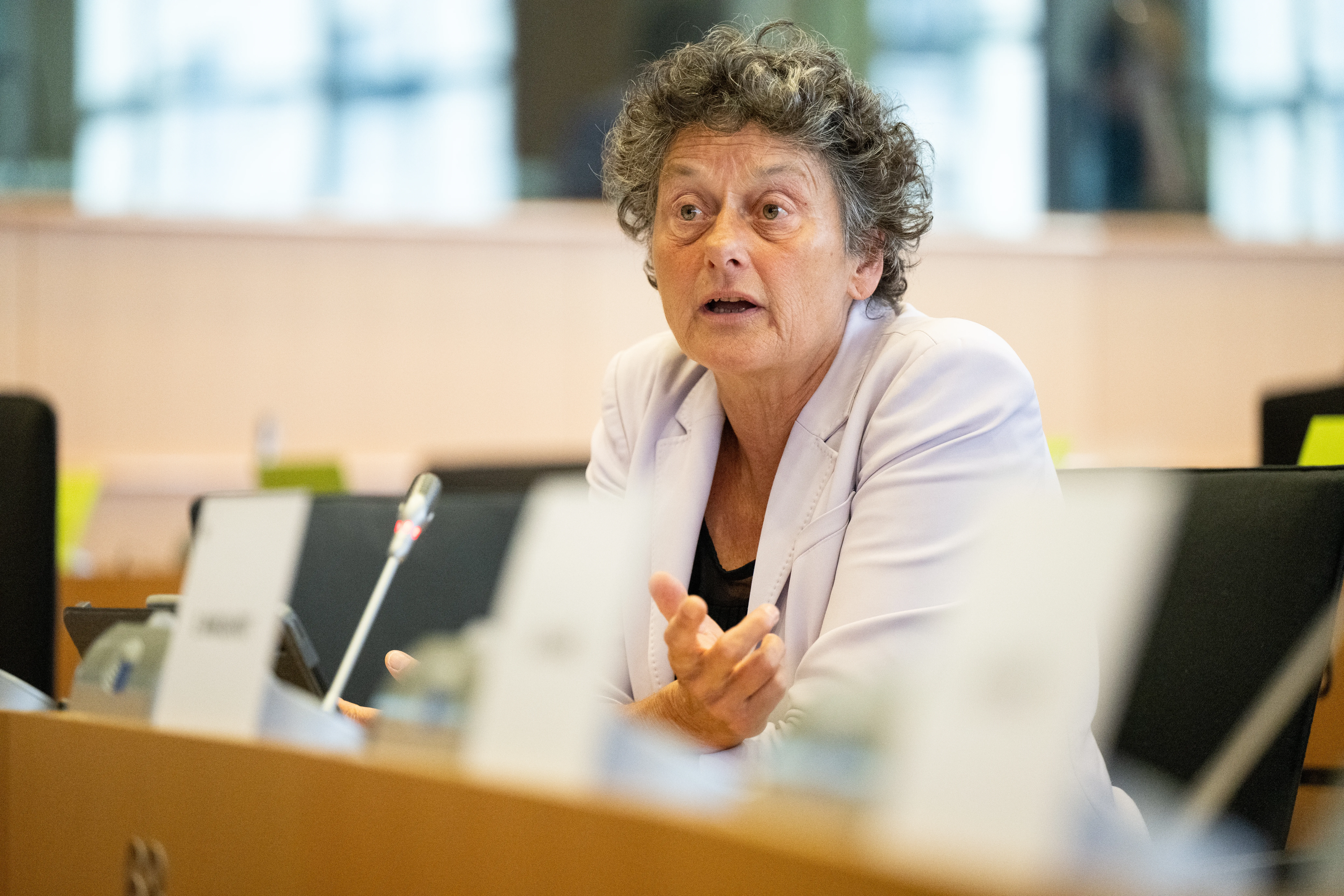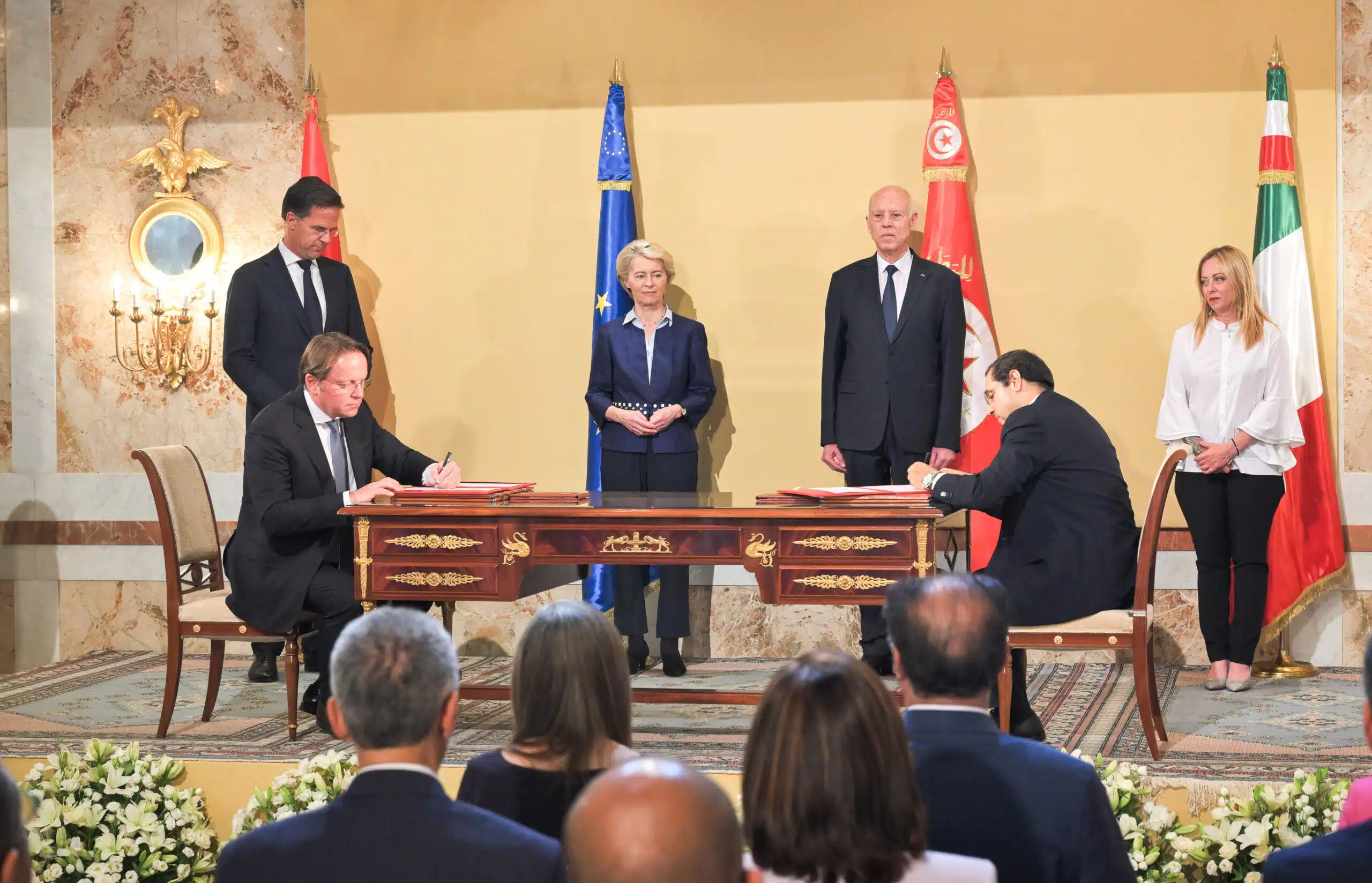Brussels – The Strategic Partnership Agreement signed last July by Ursula von der Leyen and Kais Saied continues to make headlines. The Green Group in the European Parliament has announced that it will raise an objection to at least block the disbursement—provided for in the chapter on macroeconomic assistance included in the Memorandum—of €150 million in Tunisian budget support from EU coffers. To suspend funding, the relevant parliamentary committee—in this case, the Foreign Affairs Committee (AFET)—can submit a motivated motion for a resolution stating that “a draft implementing act or measure is inconsistent with Union law” and submit it to a vote of the European Parliament plenary. Although the objection would not be binding on the European Commission in any case.
Dutch MEP, Tineke Strik, published the letter that the Greens addressed to the AFET Commission, in which they denounce that they have “never received a conclusive answer from the EU executive” to the continuous inquiries about monitoring respect for the rule of law, democracy, and human rights under the agreement with Tunisia and whether any form of conditionality was applied to authorize funding.

In a country where “the rule of law and human rights are continually under intense pressure from the central government,” a 150 million euro budget support should not be taken lightly. The letter, co-signed by Strik and colleagues Erik Marquardt and Mounir Satouri, lists “the continued harassment, dismissals, and arbitrary detentions of journalists, lawyers, human rights defenders, and political opponents,” which “constitute a severe attack on the fundamental principles of the rule of law.”
For this, and the government authorities’ “treatment of migrants over the past year, including physical violence and abandonment in the desert,” the European Greens argue that the decision to grant the 150 million euros to the Saied government violates Article 21 of the Treaty on European Union, which states that the European Union’s external action must be guided by the principles of democracy, rule of law, human rights, and fundamental freedoms.
Only a few days ago, during a hearing in the Civil Liberties Commission (LIBE) with the EU Commissioner for Home Affairs, Ylva Johansson, Amnesty International had denounced the “continuous mass expulsions” carried out by the government of Kais Saied, which take place “always with the same pattern,” the one already widely documented last summer, when hundreds of sub-Saharan migrants were loaded onto buses that from Sfax—the main departure point for Europe —abandoned them in the desert at the border with Libya. In addition, Amnesty International warned, “Tunisian police are extremely corrupt” and “also take money from those who work with traffickers.”
Given then that, after the Memorandum was signed, the Tunisian authorities refused official delegations from the European Commission and Euro Chamber access to the country, Strik, Marquardt, and Satouri say they are “concerned about the degree of accountability and parliamentary oversight of this budget support for the Tunisian government.”
That 150 million, which would be an urgent measure to replenish Tunis’s coffers pending an additional 900 million tied to the release of a 1.9 billion maxi-loan from the International Monetary Fund, “risks ending up in the wrong hands and supporting an undemocratic government, while the actual benefits to the Tunisian people would be limited.” According to the Greens, “there are other more effective ways to strengthen direct support for the Tunisian people, including civil society organizations.”
English version by the Translation Service of Withub

![[foto: Wikimedia Commons]](https://www.eunews.it/wp-content/uploads/2025/04/alzheimer-120x86.png)


